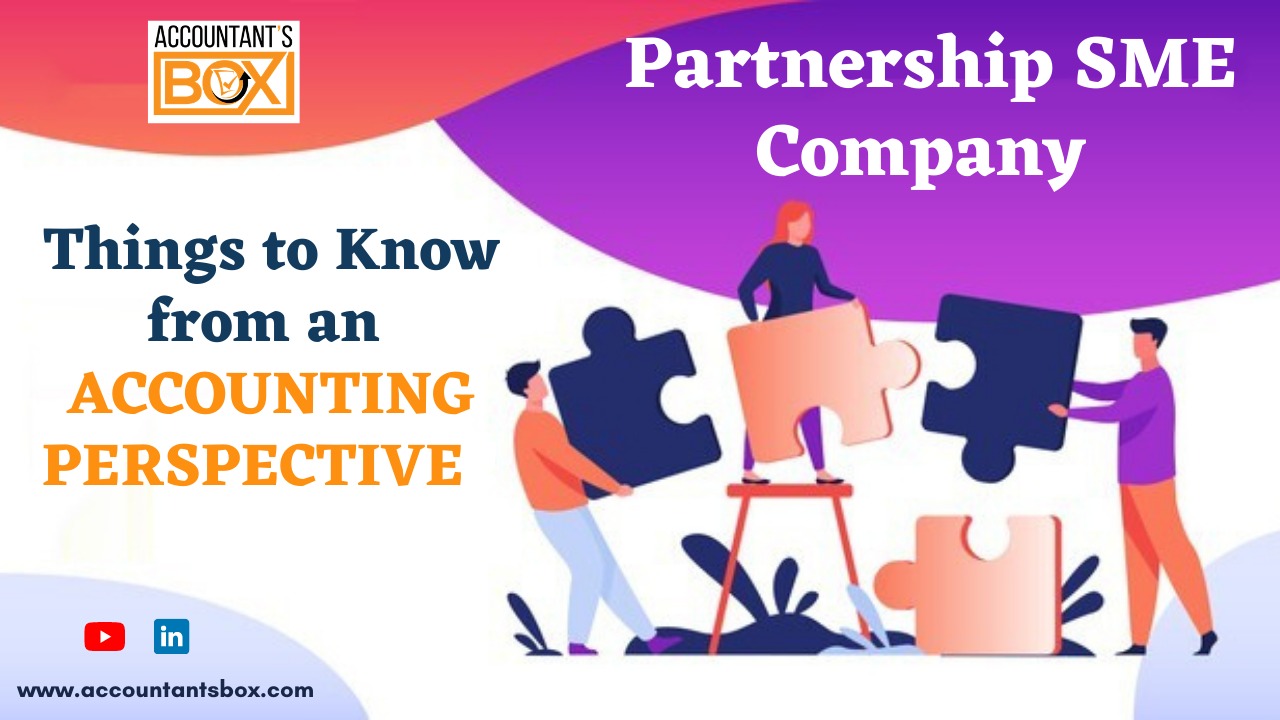INTRODUCTION
A partnership is a type of business organizational structure which involves two or more people going into business together with a view to make profit. While setting up a partnership business the owners agree to share profits/losses generated by the business. Forming a partnership is a way to create a business larger than yourself. The most common type of partnership entered is a general partnership, where all partners participate in the day-to-day management of the business.
SOME DISTINCT TRANSACTIONS ASSOCIATED WITH PARTNERSHIP COMPANIES
Except for the partners’ separate equity accounts, bookkeeping and accounting for a Partnership SME Company is similar to accounting for a sole proprietor. The separate account tracks each partner’s investment, withdrawals, and his/her share of net income or loss.
However, there are certain distinct transactions associated solely with partnerships:
Contribution by the partners:
When a partner invests funds in a partnership, the accounting entry in BOA is debit to the cash account and a credit to a partner’s equity account. When a partner contributes assets other than cash (like equipment, accounts receivable, etc), the partnership company establishes and records the asset at the fair market value.
Withdrawal by the partners:
When a partner withdraws funds from a business, the accounting entry in BOA is credit to the cash account and a debit to the partner’s equity account. When a partner extracts asset other than cash from a business, the respective asset account is credited. Depending on the partnership agreement, the partners can mutually agree to pay the money over a period of time, with interest. This way, there won’t be a cash-flow crisis arising out of paying the entire price on the spot in one lump sum.
Allocation of profits/losses:
When a partnership closes its books for an accounting period, the net profit or loss for the period is calculated. The partnership agreement decides how the net profit/loss will be allocated to the partners. If the agreement is silent, it will be allocated equally to all partners. Once net income is allocated to the partners, closing entries are passed to transfer income to partners’ capital accounts. However, it is important to note that allocating net income does not necessarily mean that the partners actually receive cash. Cash is paid to a partner only when they withdraw from the partnership.
POINTERS PARTNERSHIPS SHOULD KEEP IN MIND. OUR VIEWS AS EXPERT ACCOUNTING FIRM IN DUBAI:
- Difference between investor and partner
Even though financial contribution is important, this alone is not a worthwhile reason to bring in a business partner. If financial capital is all your partner is bringing to the organisation, that’s not a business partner—that’s an investor. Make sure you understand the difference and then structure your partnership agreement accordingly.
Importance of an exhaustive partnership agreement
An exhaustive partnership agreement should address all the possible topics-ranging from voting rights, profit allocation, decision making power allocation, dispute resolution, etc. It should answer all the “what if” questions about what happens in a number of typical situations. For example, when just two partners own the business 50-50, there’s the possibility of a deadlock due to equal voting rights. To avoid this, there should be a provision for a third partner in the agreement, who may own only 1 percent of the business but whose vote can break a tie.
We advise taking help of an experienced attorney to create a partnership agreement. There are many accounting firms in Dubai who can assist with the financial aspects of the agreement.
Debt Tolerance of each Partner
Since partnership firms are just like any other business organisation, there might be a possibility of the business going into debt due to unforeseen circumstances. Different individuals have different levels of debt tolerance. There should be clear provisions in the partnership agreement with regards to each partner’s debt handling responsibility in the business.
Expense Budgeting
Overspending can cause disagreements between business partners. To avoid spending related conflicts, it’s advisable to set an expenditure budget in the financial projections (there are many accounting firms in Dubai who can assist with budgeting and financial projections). There should be provisions in the partnership agreement to decide how to handle additional expenses.
Salary Allowances for Partners
Some partnership agreements have a clause of salary allowances for partners. The partner might need to take a salary for day-to-day expenses even before the business has turned a profit. These are technically not expenses for the business, but a part of the formula for splitting net income. It is important to have a clarity in these circumstances about how the salary will impact the profit-sharing structure.
Accountants Box is one of the leading accounting firms in Dubai.Our core business focus is on accounting, taxation and support services. We have worked with multiple partnership SME’s and assisted them with their accounting and taxation needs.

